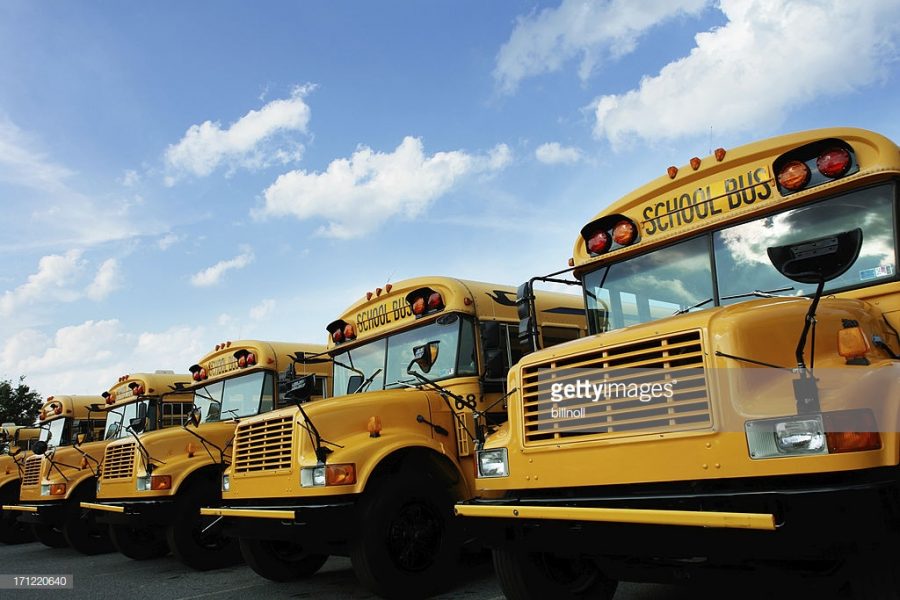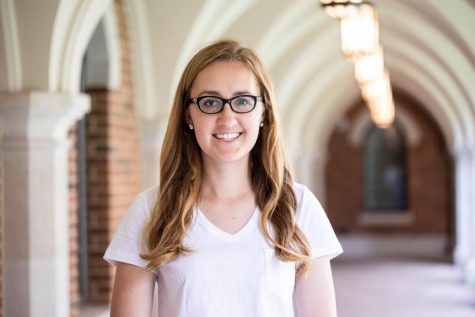Kasar Abdulla’s family settled in Fargo, North Dakota in 1992 as part of the US Refugee Resettlement Program. Her family then moved to Nashville in 1996 because the area’s scenery reminded them of Kurdistan and for the city’s strong community. Abdulla attended three different Nashville high schools before attending Tennessee State University, and none of them offered Kurdish.
“I just remember during my high school years, I was really interested in knowing my native language, a bit more the formality of it.”
Abdulla’s hope may now be coming to fruition.
In January, the Metro Nashville Public Schools board approved a proposal to begin offering courses in Kurdish in Nashville high schools. On Friday, the window opened for MNPS to submit its request for a special course adoption with the Tennessee Department of Education.
Once MNPS has submitted the proper documents, they will hear back from the state in several weeks as to whether or not the courses have been approved. MNPS hopes to offer Kurdish courses at John Overton High School for the 2019-2020 academic year. Nashville has the largest Kurdish population outside of the Middle East, and there are 1200 native Kurdish speakers in MNPS schools.
The Kurdish population in Nashville
Many people know Nashville as “Music City”, but Tennessee’s capital is also known as “Little Kurdistan” because of its large Kurdish population.
Kurdistan is a semi-autonomous region in northern Iraq. Kurds have been immigrating to Nashville in large numbers since the mid-1970s, initially to escape the violence of the Kurdish-Iraqi wars. Large numbers of Kurdish refugees also came to Nashville to flee the violent conflict of the Saddam Hussein regime during the 1990s.
“Nashville, it turns out, is an especially welcoming place for many refugee groups and immigrant groups,” Professor of Sociology Daniel B. Cornfield said. “I think what many refugees find attractive about Nashville as a destination is an affordable cost of living and a very robust local economy. Culturally, it’s a relatively tolerant city in the United States for people who were not born here.”
Cornfield described how chain migration resulted in Nashville’s large Kurdish population— friends and family of immigrants to Nashville will also move to Nashville, following their loved ones. Most Kurds in Nashville live in South Nashville.
Kurdish in MNPS
The idea to teach Kurdish in Nashville high schools came from within the Kurdish community in Nashville. Leaders from the Kurdish community reached out to the school board to ask about the possibility of teaching Kurdish in the Nashville public schools. High community interest and discussion between Nashville Kurds and MNPS drove the proposal to offer Kurdish courses.
If the course is approved by the TN Department of Education, Overton High School will survey students to gauge interest in learning Kurdish. There are currently 113 native Kurdish-speaking students at Overton High School. If there isn’t enough student interest to offer Kurdish courses there during the 2019-2020 academic year, MNPS will work to build interest to hopefully build out a Kurdish program over the next several years.
MNPS Director of Secondary Literacy & World Languages Jill Petty is excited to move forward with the approval process so that all Nashville high school students have the opportunity to learn Kurdish.
“We’re wanting to offer it to all students, not just native Kurdish-speaking students,” Petty said. “So that is our ultimate goal, is to have it as a language option for any student who is wanting to take the language and learn it.”
Petty stressed the value of learning Kurdish for native speakers and non-Kurdish students.
“Any student who becomes fluently literate in their native language has an easier time learning other languages,” Petty said. “And for non-native speakers, it opens up so many doors for them careerwise. It can be an amazing opportunity.”
Benefits of offering Kurdish in MNPS
Vanderbilt Senior Lecturer in French Elyse B. Petit has taught at the K-12 level in France and the United States, and has taught English-learner students.
“Instead of using this advantage to help students, we look down on students who aren’t that proficient,” Petit said. “Studies show that if you know more than one language, usually you are better at tests, you’re more creative.”
Petit’s son attends Glencliff High School, which has a large English learner population. The school’s academic calendar is available in English, Spanish, Somali, Kurdish, Somali, Burmese, Nepali and Arabic. Petit said that not speaking English can be a barrier to parents in helping their children to succeed.
Vanderbilt Senior Katerina Hoekstra is a secondary education and history major. She completed her assessment practicum at Glencliff High School during the fall of 2017.
“All of the classes had some group of English learner students,” Hoekstra said. “They often were sitting together at a table, and the students with the best language skills would essentially lead the whole group.”
Hoekstra said that offering Kurdish courses at the secondary level would give Kurdish-speakers an opportunity to display their academic strengths. Teaching Kurdish in Nashville public schools would give these students a foundation of communication in the classroom.
Offering Kurdish course would also benefit educators by helping teachers to better understand their students.
“If they can have a resource at the school who’s either translating for them, that could be really helpful, or let’s say the Kurdish teacher can show the other classroom teachers what the student is capable of in that class,” Hoekstra said. “That would open up the door for other teachers to see what that student knows and what their background is like.”
Once a Nashville high school student, Kasar Abdulla is now Chief Diversity, Equity, and Inclusion Officer at Valor Collegiate Academy, a public charter school recently founded in Nashville that aims to celebrate diversity. The proposal to teach Kurdish in Nashville high schools is long overdue, Abdulla said.
“Almost 96% of the Kurdish population go to public schools, but the public schools are not reflective of the community,” Abdulla said. “We don’t have enough Kurdish teachers, the Kurdish language is not being taught, and the history is not reflective. To me as a parent, it shows that the Kurdish community is now being recognized and celebrated.”
Valor Collegiate Academy has the most Kurdish students of any Nashville school, with 126 native speakers. This is Valor’s first year offering high school courses, so they only have ninth grade students. Abdulla hopes to eventually offer Kurdish language courses to Valor students. The charter school has the second largest population of Kurdish students out of all Nashville schools.
“We have to move away from just throwing out there romantic, fancy words around like diversity and inclusion, and we have to make it very real,” Abdulla said. “Diversity to me is an ocean of human differences… And inclusion becomes a reality when people not only feel like they belong, but that there is shared power happening.”
Assistant Professor of Political Science Katherine Carroll specializes in Middle East Politics and worked in Iraq from Jan. 2008 through April 2009 on a Human Terrain Team, providing social and political advice to brigade commanders and soldiers in war zones. She said that providing formal language education to Kurdish students will be valuable to them in that they will be able to write in Kurdish and act as intercultural liaisons; however, the bigger impact may lie in providing Kurdish education to non-Kurdish students.
“Those kids in high school that take the trouble to start learning Kurdish? They’re going to get really empowered, and they are going to beat out Vanderbilt students who do not have the opportunity to learn Kurdish for government jobs,” Carroll said.
Kurdish at the collegiate level
Although Nashville boasts the largest Kurdish population outside of the Middle East, there are few opportunities to learn the Kurdish language or about Kurdish language at the university level.
Middle Tennessee State University has offered an Elementary and Intermediate Kurdish sequence as part of its Middle East Studies minor. However, no Nashville institutions offer such courses.
“Nashville is a hub of education,” Abdulla said. “Many people, my friends outside of Nashville, are shocked that none of the universities have any sort of Kurdology or ethnic studies that focus on the Kurdish people.”
Petit highlighted the importance of bridging the gap between high school and college curricula, noting how gaining language proficiency requires long-term practice. She said that if Nashville students are able to learn Kurdish in high school, it would be beneficial for them to be able to continue learning it in college.
Carroll emphasized the potential career benefits for Vanderbilt students to learn Kurdish.
“It’s really important right now, because either the Kurds are not gonna get a state, and we’re going to need to know Kurdish, or they are going to get a state, and we’re going to need to know Kurdish,” Carroll said. “And who better to know Kurdish that Vanderbilt students in the middle of the city with the largest Kurdish population?”
Vanderbilt junior Henry Rathjen interned with a US oil company in Kurdistan during the summer of 2018. He said that if Vanderbilt had previously offered courses in Kurdish, he would have taken them.
Kurds and the greater Nashville community
Because of chain migration, Nashville and Kurdistan have strong ties.
“The Kurds that I talked with, when they heard that I live in Nashville, they’d be like, ‘Oh my gosh, I have so much family that lives in Nashville’, or ‘I was in Nashville last year, I’m trying to go back,” Rathjen said.
Petty said that if MNPS and Vanderbilt began offering Kurdish courses, it would be an opportunity for Vanderbilt students to interact with and support MNPS students by offering tutoring.
Cornfield completed the Partnering for an Equitable and Inclusive Nashville report with a team for the NashvilleNext planning process in 2013. In the report, he recommended that the Nashville government work to educate the native population about the cultures of newly-arriving immigrant groups.
“One might argue from a social policy perspective is that by offering Kurdish in the public schools, it’s an opportunity for many native Nashvillians and schoolchildren to learn about the culture through studying the language of a large immigrant group that does exist in Nashville,” Cornfield said.
A three-year plan
Petty said that rolling out the Kurdish language program at MNPS could take three years. There are two dialects of Kurdish, and which MNPS teaches would depend on the availability of certified teachers.
Overton High School would be the first to offer Kurdish courses, hopefully followed by Glencliff High School and Antioch High School, which both have high English learner populations.As a former teacher at Antioch High School, Petty appreciates the benefits and challenges that a diverse student body brings.
“I was so amazed at just the number of various cultures and languages that were represented,” Petty said. “It is a beautiful thing, and it’s also a very challenging thing. Because you get so many diverse perspectives and experiences that are brought to the classroom. You uncover different subjects and topics that everybody brings to the table.”



